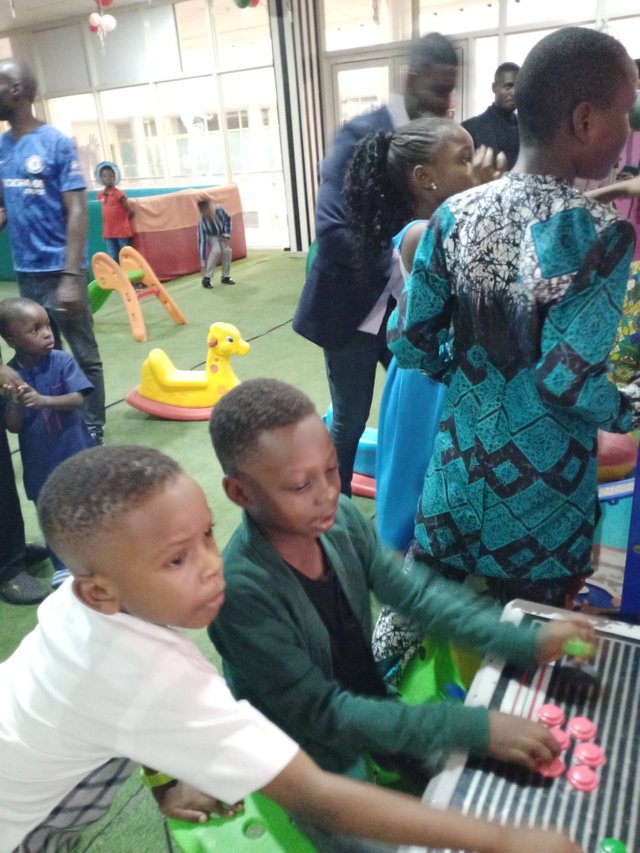ACTIVE LISTENING
Parenting may be demanding and time-consuming. You want to give your children your undivided attention and listen to their stories, but you have a big list of chores to complete. Your youngster may feel unnoticed or ignored, leading to a distant relationship between the two of you.

What exactly is active listening?
Listening does not imply submission. When people say "listen," the word "obey" is frequently used.
Active listening is first seeking to understand; empathizing, walking a mile in someone else's shoes. Please listen and attempt to understand what your youngster has to say whenever possible. When you intentionally listen, you are also curious. You inquire to clarify what they have said.
Active listening informs your child that you are interested in what he or she has to say. Active listening fosters a good and open parent-child connection.
To promote active listening, practice the following:
• Give your total attention to your child
• Create eye contact and put down your other activities
• Lower yourself to your child's level
• Reflect on what he/she is saying and experiencing to ensure you comprehend
It's easy to dismiss our children's difficulties or concerns, especially if we've had a poor day or are overly busy. Our children, on the other hand, require assurances that we will pay attention to them. This increases the likelihood that our children will discuss their problems with us.

Using Reflections To Demonstrate That You’re Listening
Reflection is one way you may demonstrate that you are attentively listening to your youngster. You can accomplish this by repeating what your child has said or naming and summarizing how you believe he feels.
Words' Reflections
When you reflect your child's words, you are highlighting his use of language. This raises the likelihood of your child talking more since he wants your attention. You do not have to repeat precisely what your child said, but what you say should be extremely similar. You have the ability to add details, shorten, amend and clarify what your child has said.
Emotional Reflections
When you mirror your child's feelings, you observe his behavior and explain the emotions he appears to be experiencing. Let him know you can identify with his unpleasant feelings and find remedies. Emotional reflection offers your youngster a label for the emotion and teaches him that it is okay to express his feelings. Emotional reflection is not always easy.
Here are some pointers to help:
-Even if you're unsure, make a guess.
You may be unsure of how your child is feeling at times. For example, if your child is weeping, you may not know whether he is angry, scared, or sad. Let him know that you are paying attention by mentioning, "It seems like you are angry or "It sounds/looks like something is troubling you."
Attempt to Understand Your Child's Feelings
It can be tough to explain or label your child's feelings when you believe he should be responding differently. Telling your child to stop feeling a certain way does not demonstrate that you are attempting to understand how he feels. Talking with your child about his feelings will help him deal with and comprehend them.
You could also look for ways to validate your child's point of view and feelings.
"I can see how/why that would make you feel uncomfortable," you can say to convey that you are validating and considering their points of view.
Discuss Multiple Emotions.
Children may experience multiple emotions at the same moment. For example, your youngster may experience both sadness and fear. Show your child that you care about what she is exhibiting on the surface and what she may be experiencing on the inside by discussing all of her feelings.
Don’t Be Concerned About Getting Things Wrong.
Sometimes when parents are learning active listening skills, they worry that they will incorrectly summarize and label their child’s feelings. You should not worry. When their parents describe their sentiments inaccurately, children frequently correct them. Try again if your youngster corrects you. Reflect on what he has said to you and expand on it to give him more words and to learn new methods to express his emotions.


Final Thoughts
Remember that active listening is a form of respect and dedication that can lead to trust, regardless of who you are speaking with. And trust is an essential component of any healthy connection, including parent-child relationships.
Downvoting a post can decrease pending rewards and make it less visible. Common reasons:
Submit
This post has been upvoted through Steemcurator09.
Team Newcomer- Curation Guidelines for February
Curated by - @inspiracion
Downvoting a post can decrease pending rewards and make it less visible. Common reasons:
Submit